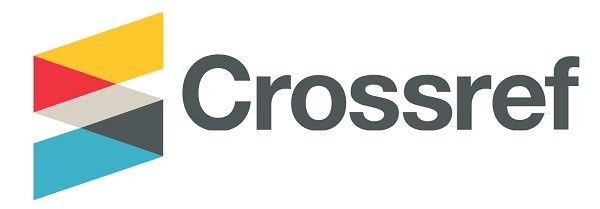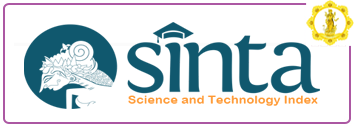PENGEMBANGAN E-MODUL PADA MATA KULIAH ANALISIS PROSES BISNIS SISTEM INFORMASI UNTUK MAHASISWA TEKNIK INFORMATIKA
DOI:
https://doi.org/10.25078/jpm.v9i01.2227Keywords:
ELSA, ADDIE, E-ModulAbstract
Implementation of the learning process at the Indonesian Institute of Business and Technology (INSTIKI), using a Learning Management System called ELSA. All teaching materials contained in ELSA are electronic modules, but these modules are only duplications of printed modules without changing the presentation inside. The presentation of the E-modul cannot accommodate direct knowledge and educational goals cannot be achieved. The purpose of this research is to develop an e-modul of information system business process analysis to support the course of information system analysis and design. The method used in this study is the research and development (R&D) method using the ADDIE approach model stages. This research will be carried out in several stages, namely the first stage of analyzing student needs and analyzing the curriculum. The second stage is designing the e-modul by determining the elements needed in the e-modul. The third stage is the product realization stage according to the design. The fourth stage was implementing the e-modul with Flip book maker and Canva. The fifth stage evaluates the implementation results through small group tests and tests the effectiveness of the product. The result of this research is that the resulting product can increase students' understanding in designing an information system. The quality of the information system business process analysis e-modul stated that this teaching material has good quality and is suitable for use in learning based on validation carried out by material experts with an average value of 0.93 while media experts with an average value of 0.9 and 6 students with an average value of 0.83. Teaching materials in the form of e-moduls are declared valid because they have a very good average.
Downloads
References
Adawiyah, A., Hasanah, A., & Munsi, M. F. (2019). Literasi visual melalui teknologi canva: Stimulasi kemampuan kreativitas berbahasa indonesia mahasiswa. In Conference: 3rd CONNECTS 2019 “Education Transformation in Facing Industrial Revolution 4.0” (pp. 183–187). Jawa Barat: Universitas Suryakancana. Retrieved from https://www.researchgate.net/publication/331982362
Aditya, M., Wibawanto, S., & Gunawan, G. (2020). Implementasi Model MPI untuk Pengembangan Modul Mata Kuliah Analisis dan Desain Sistem Informasi di S1 Pendidikan Teknik Informatika UM. Belantika Pendidikan, 3(2), 59–65. https://doi.org/10.47213/bp.v3i2.93
Almelhi, A. M. (2021). Effectiveness of the ADDIE Model within an E-Learning Environment in Developing Creative Writing in EFL Students. English Language Teaching, 14(2), 20–36. https://doi.org/10.5539/elt.v14n2p20
Amalia, S. L. F., Ayuningtyas, T. R., & Adzkiyak. (2020). Pengembangan media flip book berbasis peninggalan megalitikum sebagai sumber belajar untuk meningkatkan prestasi belajar siswa kelas X PM SMK Trunojoyo Jember ajaran 2018/2019. SANDHYAKALA : Jurnal Pendidikan Sejarah, Sosial Dan Budaya, 1(1), 38–46. Retrieved from https://jurnal.ikipjember.ac.id/index.php/sandhyakala/article/view/268
Ardiansah, I., Yohari, A., & Rahmah, D. M. (2022). Analisis dan Analisis dan desain Sistem Informasi Ketersediaan Pisang Lokal Berbasis Web. (A. Kamsyach, Ed.) (Cetakan I). Bandung: CV. Cendekia Press.
Chairunnisa, K., & Sundi, V. H. (2021). Pelatihan penggunaan aplikasi canva dalam pembuatan poster pada siswa kelas X SMAN 8 TANGSEL. In Prosiding SEMNASKAT LPPM UMJ 2021 (pp. 1–4). Jakarta Selatan: Universitas Muhammadiyah Jakarta. Retrieved from https://jurnal.umj.ac.id/index.php/semnaskat/article/view/10658
Elisa, E., & Simanjuntak, P. (2021). Pelatihan pemanfaatan aplikasi canva online untuk kreasi pembelajaran pada HIMPAUDI Batam center. Jurnal PADI –Pengabdian MAsyarakat Dosen Indonesia, 4(2), 15–19. https://doi.org/https://doi.org/10.51836/jpadi.v4i2.266
Harahap, E. F., Adisuwiryo, S., & Fitriana, R. (2022). Analisis dan Analisis dan desain Sistem Informasi. (N. Wahid, Ed.) (Edisi Pert). Jawa Tengah: Wawasan Ilmu.
Haryanto, Asrial, Ernawati, M. D. W., Syahri, W., & Sanova, A. (2019). E-Worksheet Using Kvisoft Flipbook: Science Process Skills And Student Attitudes. International Journal Of Scientific & Technology Research, 8(12), 1073–1079. https://doi.org/https://doi.org/10.21154/insecta/v2il.2555
Hydayat, A., & Ariani, Y. (2022). Pengembangan Bahan Ajar E-Modul Berbasis Flip PDF Professional Materi Jaring-Jaring Bangun Ruang Sederhana di Kelas V SDN 24 Parupuk Tabing. Jurnal Pendidikan Tambusai, 6(2), 15683–15688. https://doi.org/doi.org/10.31004/jptam.v6i2.4868
Lesmana, R., Sunardi, N., & Tumanggor, M. (2020). Pelatihan Manajemen dalam Meningkatkan Motivasi Siswa dan Guru SDN 84 Rejang Lebong. Jurnal Abdi Masyarakat Humanis, 1(2), 105–112.
Nisrina, S. H., Rokhmawati, R. I., & Afirianto, T. (2021). Pengembangan E-modul Berbasis Project Based Learning (PjBL) pada Mata Pelajaran Animasi 2 Dimensi dan 3 Dimensi untuk Meningkatkan Hasil Belajar Peserta Didik. Edu Komputika Journal, 8(2), 82–90. https://doi.org/10.15294/edukomputika.v8i2.48451
Nurlaili, R., Zubaidah, S., & Kuswantoro, H. (2021). Pengembangan E-modul Berbasis Discovery Learning untuk Meningkatkan Kemampuan Berpikir Kritis Siswa Kelas XII Berdasarkan Penelitian Analisis Korelasi Kanonik dari Persilangan Tanaman Kedelai. Jurnal Pendidikan: Teori, Penelitian, Dan Pengembangan, 6(2), 213–219.
Oktarina, R., Ambiyar, Giatman, M., Fadhilah, Muskhir, M., & Effendi, H. (2021). The Effect of The Use of Multimedia Flip Book with the Flipped Classroom Approach in Vocational School. Journal of Education Technology, 5(1), 159–166. https://doi.org/https://doi.org/10.23887/jet.v5i1.31435
Pramana, M. W. A., Jampel, I. N., & Pudjawan, K. (2020). Meningkatkan Hasil Belajar Biologi Melalui E-Modul Berbasis Problem Based Learning. Jurnal EDUTECH Undiksha, 8(2). https://doi.org/http://dx.doi.org/10.23887/jeu.v8i2.28921
Purnamadewi, D. U., & Wiyasa, I. K. N. (2022). Pengembangan Media Flip Book Digital Berbasis Discovery Learning Materi Sistem Pencernaan Manusia Kelas V Sekolah Dasar. Jurnal Pendidikan Dan Konseling, 4(2), 490–495. https://doi.org/doi.org/10.31004/jpdk.v4i2.4175
Rahmawati, F., Sarwanto, S., & Budiawanti, S. (2021). Needs analysis of physics e-modul based on hybrid-PBL model on critical thinking skills improvement. Momentum: Physics Education Journal, 5(2), 175–181. https://doi.org/https://doi.org/10.21067/mpej.v5i2.5740
Rajabalee, Y. B., & Santally, M. I. (2021). Learner satisfaction, engagement and performances in an online module: Implications for institutional e-learning policy. Education and information technologies. https://doi.org/https://doi.org/10.1007/s10639-020-10375-1
Rayanto, Y. H., & Sugianti. (2020). Penelitian Pengembangan Model ADDIE dan R2D2: Teori dan Praktek. Pasuruan: Lembaga Academic & Research Institute.
SUMANDYA, I. W. (2021). Pengembangan E-Modul Statistika Berbasis Vokasi Terintegrasi Pendidikan Karakter Untuk Meningkatkan Hasil Belajar Siswa Kelas Xii Smk. Universitas Pendidikan Ganesha.
Sumarmi, Bachri, S., Irawan, L. Y., & Aliman, M. (2021). E-modul in blended learning: Its impact on students’ disaster preparedness and innovation in developing learning media. International Journal of Instruction, 14(4), 187–208. https://doi.org/10.29333/iji.2021.14412a
Supradaka. (2022). Pemanfaatan Canva Sebagai Media Analisis dan desain Grafis. IKRA-ITH Teknologi Jurnal Sains &teknologi, 6(1), 62–68. Retrieved from http://repository.upi-yai.ac.id/6502/
Syahidi, A. A., Tolle, H., Supianto, A. A., Hirashima, & Tsukasa. (2020). The concept of using interactive educational media with problem-posing interaction flow in basic programming learning. Third International Conference on Vocational Education and Electrical Engineering (ICVEE). https://doi.org/https://doi.org/10.1109/icvee50212.2020.9243188.
Viveka, S., Pushpa, N. B., & Ravi, K. S. (2021). Online Learning Modules in Anatomical Sciences: Effective Sources for Continued Learning for Medical Undergraduates During the Unprecedent COVID-19 Pandemic. Galician Medical Journal, 28(3), E202136. https://doi.org/10.21802/gmj.2021.3.6
Yunus, Y. (2019). Validitas Media E-Modul Pemograman Berorientasi Objek Ii Berbasis Problem Based Instruction. Curricula: Journal of Teaching and Learning, 4(3). Retrieved from http://dx.doi.org/10.22216/jcc.2019.v4i3.3596
Zufria, I. (2022). Analisis dan Analisis dan desain Sistem Informasi. (Suendri, Ed.). Medan: CV. Pusdikra Mitra Jaya.









